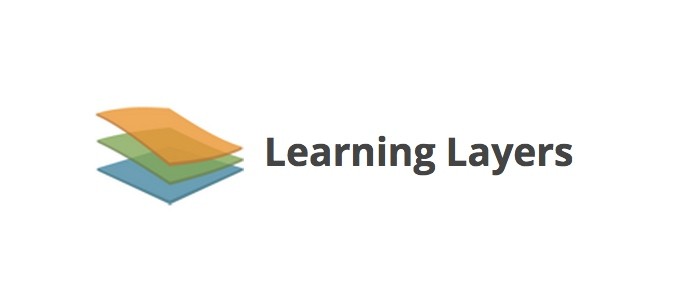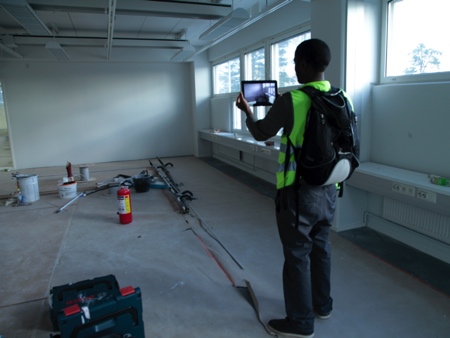
Case Studies
Learning Layers Project: Case studies
by WorkLearnMobile

Learning Layers is an innovative, multi-national research project using mobile, and other technologies to offer enhanced scaffolding, and support frameworks to informal, work based learning. The partnership includes 17 different organizations and academic institutions across Europe, and has been supported by the European Commission (FP7 ICT Integrated Project, 9.9 million euros).
Learning Layers is striving to scale up and support informal learning and support processes at work, by the introduction of a range of cutting edge technologies, adaptive learning models, and social community strategies. The project is targeting two very challenging application areas:
- Building and Construction industry (in Germany)
- Healthcare sector (in England).
The project places a heavy emphasis on involving real practitioners in the learning design, so started with an in-depth analysis of workplace learning practices and learning needs at the customer sites. Design teams consisting of researchers, developers and representative professionals worked with large-scale regional SME clusters as well as end-users, who helped to co-design the system. They aim to scale up the approach to more than 1,000 learners within 4 years.
 New mobile technologies and learning apps have rapidly changed the workers’ opportunities for informal learning at work. However, organization-wide and cross-organizational informal workplace learning has remained fragmented, unsystematic, and has not replaced costly work-based training courses. There is clearly the need for new solutions that would scale up informal learning and learning support for organizations and beyond. A systemic approach to scaling would enable individuals to be productive and creative at work as they can receive relevant and meaningful support for their learning in the context of their work.
New mobile technologies and learning apps have rapidly changed the workers’ opportunities for informal learning at work. However, organization-wide and cross-organizational informal workplace learning has remained fragmented, unsystematic, and has not replaced costly work-based training courses. There is clearly the need for new solutions that would scale up informal learning and learning support for organizations and beyond. A systemic approach to scaling would enable individuals to be productive and creative at work as they can receive relevant and meaningful support for their learning in the context of their work.
Scaling informal learning requires developing services for facilitating incidental and intentional informal learning, powered by networked peer-support and usage of collective knowledge creation. This means systemically connecting learning of individuals, organizations and cross-organizational networks.
They found that for individuals it is important to turn incidental learning into intentional learning experiences. The project has identified some critical incidental learning practices that take place as a side effect of the work and require systematic ICT support to maximize their learning benefit:
- Capturing, making sense of, reflecting about, and learning from useful knowledge bits as they emerge in practice;
- Retrospectively discovering personal learning trajectories.
- We have found some intentional non-formal learning practices that require technology support:
- Validating informal learning experiences collectively;
- Unlocking knowledge that emerges from experiences that are currently mainly passed on unsystematically and in face-to-face situations;
- Sharing experiences about good work practices within and across organizations;
- Cascading knowledge and new norms among professionals and across organizations;
- Discussing and validating new norms through practice, and;
- Finding help through interacting with real artefacts in work surroundings.
In organizations and cross-organizational networks other issues of informal learning appeared critical:
- Finding experts who could provide timely support;
- Accumulating expertise, quality and trust for persons and resources;
- Involving practitioners into creating resources for cross-organizational profession-based knowledge bases, and;
- Sharing knowledge bases among organizations without losing the competitive edge.
The following prototype tools are currently in development:
- Bits and Pieces tool: Augmenting the processes of collecting, remembering, sensemaking and documentation of experiences at work.
- Help Seeking tool: Moving beyond local trusted networks into wider professional networks.
- AchSo!: Supporting rapid recording of situations arising in the workplace
All the tools are connected with the Learning Layers Social Semantic Server that enables to scale up informal learning by applying semantic analysis of social data with the aim of growing and validating organizational knowledge and finding support For more details, see http://learning-layers.eu/or watch the project video or reach out at layers@learning-layer.eu.